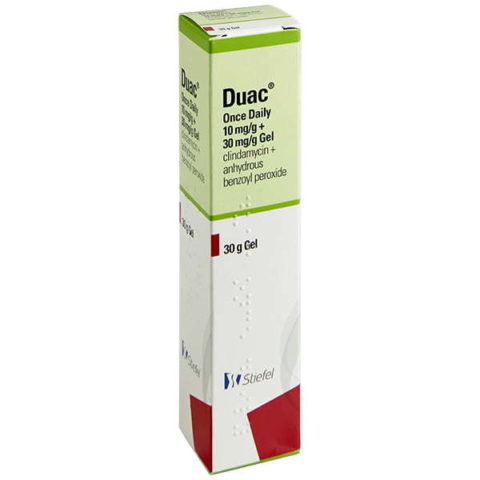Need something else?
We stock over 1102 treatments for 90 conditions

Acne can be distressing at the time, but for some people, it can also leave acne scars that are long-lasting and upsetting. Fortunately, there are ways you can treat acne scars and finding out how to get rid of acne scars is easy.
In the article below, we’ll be looking at how to get rid of acne scars, including medical creams, cosmetic acne scars treatment and the best acne scars home remedies (such as the best oils for acne scars).
For a general introduction to acne, head over to our page dedicated to exploring what causes acne or visit our other acne guides for more information about the condition and different types of acne treatment.

If your acne breakouts have subsided but you’ve been left with long-lasting marks and scars then you may want to know how to get rid of acne scars.
There are lots of different types of acne scars treatments, which are generally regarded as a type of cosmetic surgery in the UK.
The acne scar treatment that works best for you will depend on the type and severity of the acne scars you have; there are a few different types of acne scars which can be split into two main categories: atrophic scars (depressions caused by a loss of skin tissue) and hypertrophic scars (raised lumps of scar tissue caused by excessive tissue growth) such as keloid scars.
The five most common types of acne scars are keloid scars, ice pick scars, boxcar scars, rolling scars and post-inflammatory hyperpigmentation.
Here are some of the main acne scars treatments available:
There are also a number of creams available for acne scars if you want to try treating acne scars yourself at home. We’ll talk more about these options in the section below.
Some of the acne scar treatments above can be abrasive or painful and may need to be repeated regularly to work. They may also be expensive depending on where you are in the world (they aren’t usually available on the NHS).
If you want to try to get rid of acne scars at home on your own, then there are creams for acne scars available. Here are some of the products and ingredients you should look out for:
Some of these are available over the counter and some products are stronger and will need a prescription. Speak to your GP about your options — they will be able to advise you further.
If you don’t think that cosmetic surgery or prescription medications are for you, then there are home remedies for acne scars you can try.
Many people use natural remedies to help reduce the appearance of acne scars. However, it’s worth noting that there is not much clinical evidence and research into these home remedies and the science behind them. Some acne scars home remedies may also cause further irritation or other problems, so they need to be used with caution.
Some traditional home remedies for acne scars include:
Many of these ingredients can be found in your kitchen or bathroom cupboards at home, however, we would not recommend using the above treatments.
Some oils can help reduce the appearance of scars, so they can be a good option if you want to try getting rid of your acne scars at home.
Oils are thought to work by regenerating the skin cells of damaged skin, improving the appearance of scars and skin health.
Here are some of the best oils for acne scars.
Essential oils are often recommended when it comes to acne scars home remedies.
Essential oils support skin health by reducing inflammation, redness, and balancing skin tone. This makes them particularly beneficial for acne scars.
There are several essential oils that are typically used for acne scars:
Most essential oils need to be diluted before being applied to your skin (they can upset your skin’s natural balance otherwise). To use them, you just need to add a few drops to a carrier oil such as almond or jojoba oil and apply the mixture to the affected area at least once a day (you don’t need to wash the oil off).
You may begin to see positive results within just a few months of consistent daily use of essential oils, but it can take up to a year for scars to completely heal.
Tea tree oil is probably the most well-known essential oil for treating acne itself, due to its anti-inflammatory, antiviral, antibacterial and antifungal properties.
Tea tree oil is also said to help reduce the appearance of acne scars. However, this is mostly thought to refer to hypertrophic (raised) scars and the hyperpigmentation that occurs after inflammatory breakouts.
There isn’t currently enough research into how effective tea tree oil is at treating scars and the effects on acne scars aren’t proven.
However, tea tree oil can help to alleviate and manage acne breakouts in the first place, which can help to reduce the risk of scarring.
Unlike other essential oils, tea tree oil doesn’t need to be added to a carrier oil to ensure it doesn’t upset your skin — it can be applied directly to your skin on its own.
Rosehip oil is another type of oil that may reduce the appearance of acne scars.
Rosehip seed oil is thought to have soothing and repairing qualities that work well for damaged scar tissue — improving discolouration and redness. This means that if you have dark-coloured scars or hyperpigmentation from acne breakouts, then rosehip oil could help.
However, if your acne scars are atrophic (depressed in the skin) then rosehip oil is unlikely to help.
You could also use coconut oil for acne scars. Coconut oil has a naturally high vitamin E content which helps to moisturise and soften the skin. Vitamin E is an antioxidant and has anti-inflammatory properties.
Some people believe that coconut oil can help and heal acne scars. However, while coconut oil can help keep skin in a healthy condition, there is currently no scientific evidence to suggest it can fade acne marks or heal acne scars.
Coconut oil can also clog pores, so you’ll need to be careful using it and ensure that it doesn’t irritate your skin if you want to try this acne scar home remedy.
Many of the medical treatments and natural remedies we have mentioned above will help to fade acne scars if you do not want to remove your acne scars through cosmetic surgery.
It may be that you have to try a few different treatment options out before you find one that works effectively for you — everyone has different experiences of acne scars and different types.
Acne scars can fade over time, though it depends on the type of acne scars you have and the severity of your acne. While some scars will fade on their own, others are more stubborn.
In particular, post-inflammatory hyperpigmentation (discolouration of the skin) tends to go quite quickly — taking around three to six months to fade.
Hypertrophic and keloid scars generally fade in colour over time, going from red or purple in appearance to brown or pale in colour.
Deeper, atrophic scars like ice pick scars and boxcar scars can take longer and may not fade on their own, requiring some of the treatments above instead. Rolling scars may even become more obvious or severe as you get older and your skin loses its natural elasticity.
Acne scars can be distressing long after your acne breakouts have disappeared. Some of the time, acne scars can fade and disappear on their own, but for some people, they may be upsetting, long-lasting and even permanent.
There are different ways to treat acne scars, and this can depend on the type of scars you have and their severity. Treatment can sometimes be difficult and it isn’t always successful. However, lots of people do successfully get rid of acne scars using either medical treatments or natural home remedies.
Treating your acne using effective acne medication in the first place will dramatically reduce your risk of acne scars.
The Independent Pharmacy offers a range of acne treatments including topical and oral treatments, such as Duac Gel, Skinoren Cream, Tetralysal Capsules and Acnecide Gel.
You can get in touch with us to discuss which treatment is suitable for you and your condition — start your free online consultation today.
We stock over 1102 treatments for 90 conditions